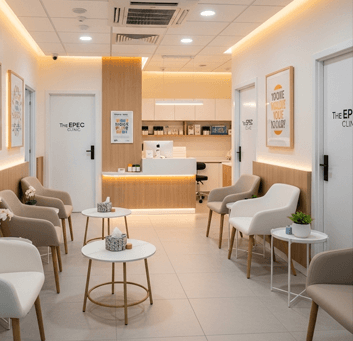Prevent Relapse With Monthly Suboxone Prescription
- Lauren

- Nov 25, 2023
- 2 min read
Relapse prevention refers to strategies, techniques, and methods aimed at helping individuals avoid returning to unhealthy behaviors or addictive patterns after a period of improvement or recovery. This concept is commonly associated with addiction recovery, but it can apply to various areas where behavior change is essential, such as mental health conditions, eating disorders, or even habits like gambling or smoking cessation.
Here are some key components and strategies often included in relapse prevention:
Identifying Triggers: Recognizing the situations, emotions, people, or environments that can lead to a relapse is crucial. This awareness helps individuals develop strategies to avoid or cope with these triggers effectively.
Developing Coping Strategies: Learning healthy ways to cope with stress, cravings, or difficult emotions is vital. This might involve mindfulness, relaxation techniques, exercise, or seeking social support.
Creating a Support Network: Having a strong support system, whether it's through friends, family, support groups, or therapy, can significantly help prevent relapse. Support can provide encouragement, advice, and accountability.
Learning and Practicing Healthy Habits: Engaging in activities that promote overall well-being, such as regular exercise, balanced nutrition, adequate sleep, and mindfulness practices, can contribute to a more stable mental and emotional state, reducing the risk of relapse.
Setting Realistic Goals: Establishing achievable short-term and long-term goals is essential for maintaining motivation and a sense of progress. Celebrating milestones along the way can reinforce positive behavior changes.
Staying Engaged in Treatment: For individuals recovering from addiction or mental health issues, staying connected to therapy, counseling, or support groups even after initial recovery can provide ongoing guidance and reinforcement of healthy habits.
Developing a Relapse Prevention Plan: Creating a specific plan that outlines steps to take if triggers arise or if there's a risk of relapse is crucial. This plan should include strategies to cope, contact information for supportive individuals or groups, and steps to recommit to healthy behaviors.
Regular Self-Assessment: Continuously evaluating one's thoughts, feelings, and behaviors helps in recognizing warning signs early. This self-awareness allows individuals to take proactive steps to prevent relapse.

Relapse prevention is a dynamic process that involves ongoing self-reflection, learning, and adaptation. It's important to understand that setbacks can occur, and they don't necessarily mean failure. Rather, they can serve as learning opportunities to reinforce strategies and continue the journey towards sustained recovery and wellness.




Comments